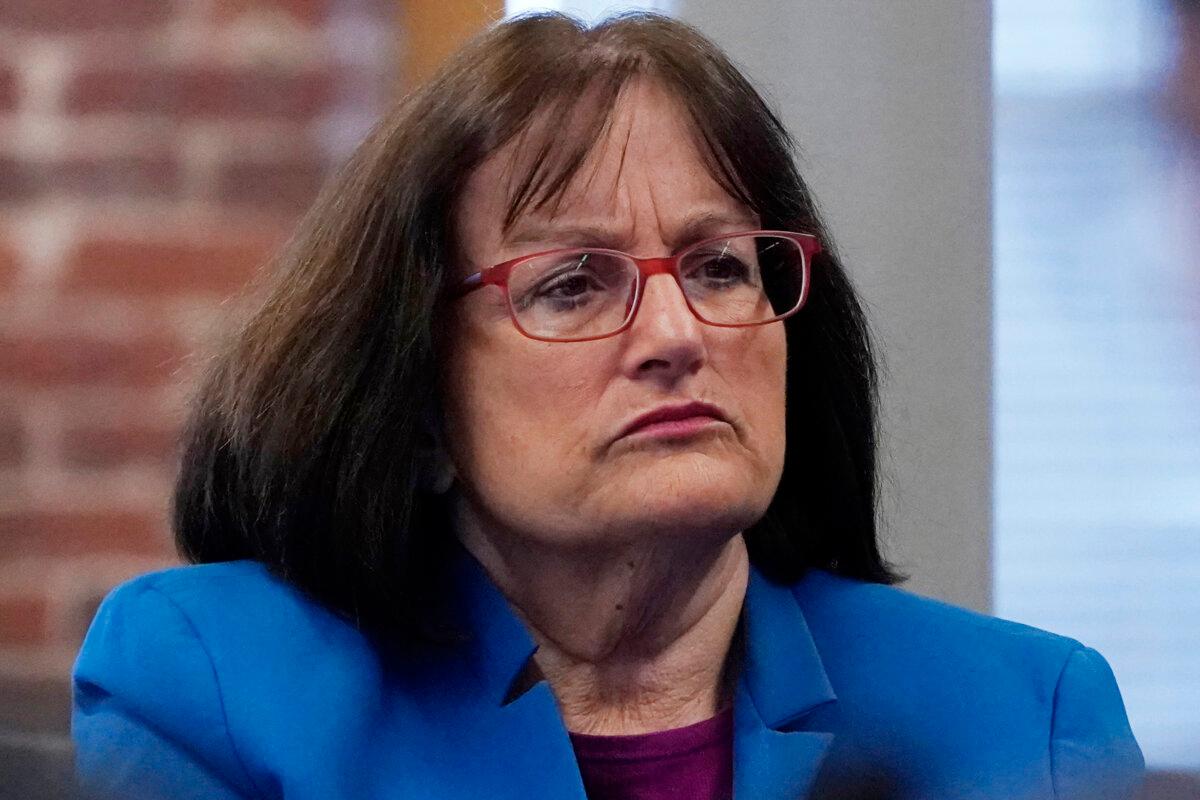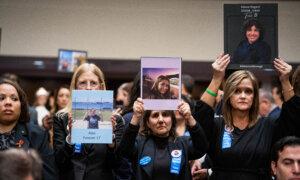The Communications Decency Act of 1996 was meant to keep pornography off the internet, but Section 230 has had the opposite effect, advocates say.
Members on both sides of a key House panel expressed support on May 21 for a bill to begin revising a law that protects social media companies from being held legally accountable for the content they host.
The as-yet unnumbered House proposal—“To Provide a Sunset for Section 230 of the Communications Decency Act”—was recently introduced by House Energy and Commerce Committee Chair Cathy McMorris Rodgers (R-Wash.) and co-sponsored by ranking Democratic member Frank Pallone (D-N.J.).
The proposal would sunset, or nullify, Section 230 of the Communications Decency Act of 1996, a provision of current law that shields social media companies such as Facebook and TikTok from being held liable for content they host on the internet that promotes bullying, illegal drug sales, sex trafficking of minors, and child abuse.
Attorney Shares Victims’ Stories
During the May 21 hearing of the Energy and Commerce Subcommittee on Communications and Technology, witnesses described a multitude of examples of adults and children who, in recent years, have suffered severe physical or mental injury as a result of such content.
“I want to tell you about some of the victims I have represented,” attorney Carrie Goldberg told the panel.
Ms. Goldberg’s New York-based law firm has represented hundreds of clients whose cases were prevented from being heard in court because of Section 230.
Among her clients are “a child whose murder was live-posted and her family is harassed daily by people who defile her murder images.”
“And in her death, her Instagram profile went from 2,000 to 200,000 followers. Instagram refuses to give her estate the power to control of the account,” Ms. Goldberg said.
“I represent children who were matched with predators on a video-streaming app, including 11-year-old ‘AM’ who was used by a man in his 30s for sex and became his sex slave for three entire years and made her go back on the app to recruit more kids.
“I am the originating attorney in a case against SNAP where our clients’ children were matched with drug dealers who sold them fentanyl and killed them. This case has 90 families in it and all 90 are mourning the deaths of their kids.”
Ms. Goldberg noted that she represents clients whose children were recruited on a social media site by a serial rapist. When the social media company was informed of the criminal activity, officials with the firm refused to do anything about it, she said.
She also said she represents dozens of clients whose children bought “suicide kits” online that contained lethal chemicals that the seller knew had no household use.
Increasing Use of Social Media
Witness Marc Berkman provided the panel with data and studies indicating the growing severity of these problems, which he and other critics say have resulted from the current law.
“Since 2007, social media use has surged across the world with the number of social media users reaching into the billions in 2024. Among teens, social media use is nearly ubiquitous. Up to 95 percent of youth ages 13 to 17 report using a social media platform, with more than a third saying they use social media ‘almost constantly.”

Nearly 40 percent of children aged 8 to 12 use social media frequently, and he said a study his group did together with researchers at the University of California–Los Angeles found that 53 percent of more than 145,000 adolescents surveyed use social media more than five hours every day.
The research also found that 46 percent of students reported having been cyberbullied on social media, nearly the same percentage reported having seen self-harm on Instagram posts, and 20 percent of them said they had texted or received nude or nearly-nude images.
Mr. Berkman also referred to the National Center for Missing and Exploited Children, which reported a 323 percent increase in online enticement reports between 2021 and 2023, and said the FBI reported that nearly two dozen sextortion victims on social media had died between October 2021 and March 2023.
Industry Response
Kate Tummarello is executive director of Engine, an industry-funded trade advocacy group. She expressed reservations about the proposal.
“Section 230 works for internet platforms of all types and sizes and, more importantly, their users. Sunsetting the law, especially in a little over 18 months without consensus around an alternative framework, risks leaving internet platforms, especially those run by startups, open to ruinous litigation, which ultimately risks leaving internet users without places to gather online,” she told the panel.
Rep. Annie Kuster (D-N.H.) noted that as the founder and current co-chair of the congressional Bipartisan Task Force to End Sexual Violence, she strongly supports the proposed suspension of Section 230.
“I am particularly concerned about reports of online dating apps being used to commit sexual assaults and how Section 230 prevents survivors from seeking justice,” Ms. Kuster told the hearing.
She told the witnesses: “I think you are hearing in strong bipartisan terms from this committee that Congress has the responsibility to ensure that legal protections are functioning as Congress originally intended. We did not intend a wide open ‘Wild West’ internet.”
A spokesman for the committee said a markup hearing is planned, but the date has not yet been settled.
Original News Source Link – Epoch Times
Running For Office? Conservative Campaign Consulting – Election Day Strategies!


